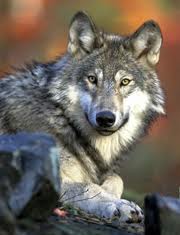For Immediate Release
August 24, 2012
Contact:
Bob Ferris, Cascadia Wildlands, (541) 434-1463
Bob Ferris, Cascadia Wildlands, (541) 434-1463
Noah Greenwald, Center for Biological Diversity, (503) 484-7495
Suzanne Stone, Defenders of Wildlife, (208) 861-4655
Greg Costello, Western Environmental Law Center, (206) 260-1166

OLYMPIA, Wash. — Seven conservation organizations sent a letter today calling on Washington Gov. Christine Gregoire and state agencies to rescind an order to kill four wolves in the Wedge wolf pack in northeastern Washington. The kill order comes just two weeks after the state killed another wolf-pack member. State agents have been dispatched and are currently in the field tracking down the wolves to kill.
The letter was sent by Cascadia Wildlands, Center for Biological Diversity, Defenders of Wildlife, Humane Society of the United States, Snohomish Group of the Sierra Club Washington State Chapter, Western Environmental Law Center and Wolf Haven International. The groups assert that the state’s plan to kill the four wolves is illegal because the state has failed to show that the livestock were killed by wolves or that the ranchers took actions to avoid depredations.
“This is a simple case of the state not following its own rules,” says Bob Ferris, executive director of Cascadia Wildlands. “You can’t kill four more members of the pack if you can’t show conclusively that wolves were responsible for the livestock deaths.”
There is a strict standard in the recently adopted “Washington Wolf Plan” about when lethal control on wolves can be authorized, including demonstrating that the livestock at issue “have clearly been killed by wolves.” A state of Washington incident report about a recent depredation near the Diamond M Ranch specifically concluded that the incident could not be confirmed as a wolf predation.
“The killing of five wolves in the Wedge pack would completely violate both the spirit and letter of the state’s wolf-management plan,” said Noah Greenwald, endangered species director with the Center for Biological Diversity. “The state needs to rescind this kill order right away and pull its staff from the field.”
Several wolf-depredation experts have reviewed the state’s investigation reports and found that none of the injuries are characteristic of wolf predation on livestock.
“The rush to kill these wolves based on misidentified predation sets a very dangerous precedent for wolf management in Washington,” said Suzanne Stone, northern Rockies representative for Defenders of Wildlife, who managed the organization’s regional wolf-compensation program from 1999 to 2011. “Instead of waiting for legitimate depredations to occur, the state should focus on using proven nonlethal alternatives that are much more effective at reducing conflicts over the long run. People will never learn how to coexist with wolves if the state is so quick to kill them.”
This pack is known as the Wedge pack because its range includes a triangle-shaped area defined by the Canadian border and the Kettle and Columbia rivers. The incidents have taken place on leased grazing land within the Coleville National Forest.
“Managing the return of wolves to our public landscape is an emotional issue, and the state will always be pressured to take extreme control measures when livestock are killed regardless of whether a wolf was responsible or not,” said Greg Costello with the Western Environmental Law Center. “Therefore, it is imperative that the state’s integrity is maintained during the wolf recovery process to ensure fair and transparent decision-making.”
Wolves are just beginning to make a comeback in Washington after a government-sponsored program of poisoning, shooting and trapping the animal to extinction in the state. There are currently eight packs of wolves in Washington since the animals’ historic return in 2008. This past December the Washington Department of Fish and Wildlife Commission adopted the “Washington Wolf Plan,” a stakeholder-developed framework that outlines recovery and management objectives for wolves in Washington.
###


